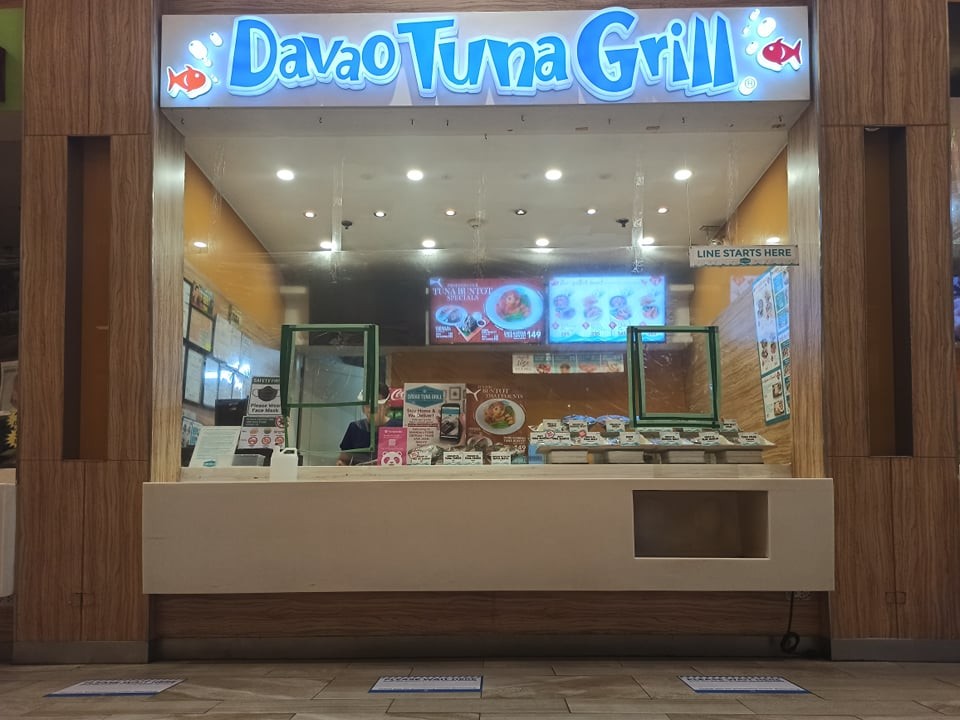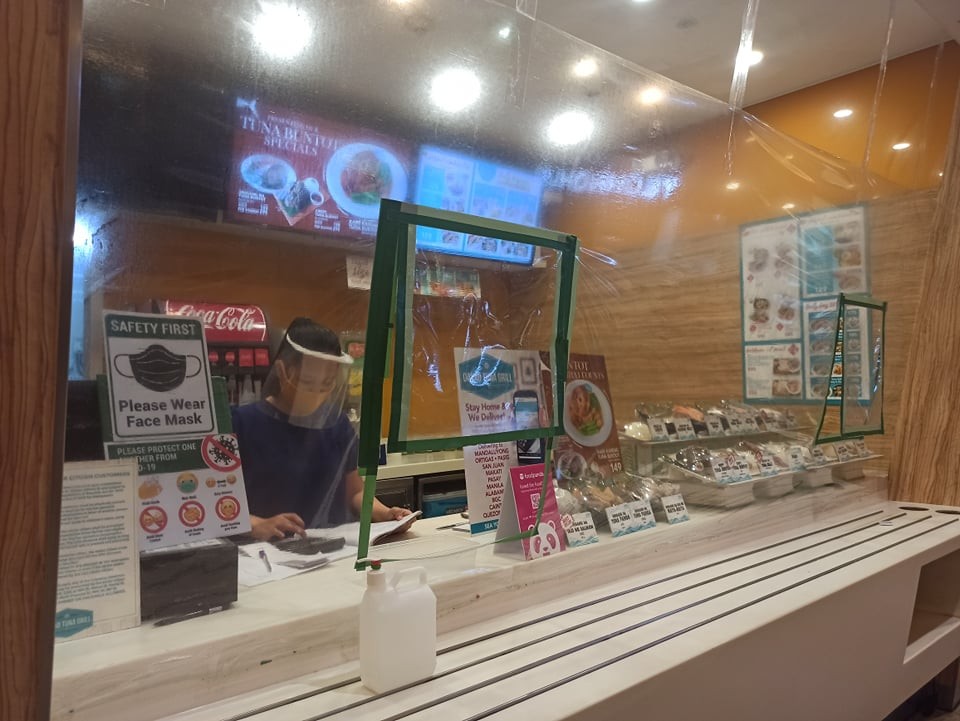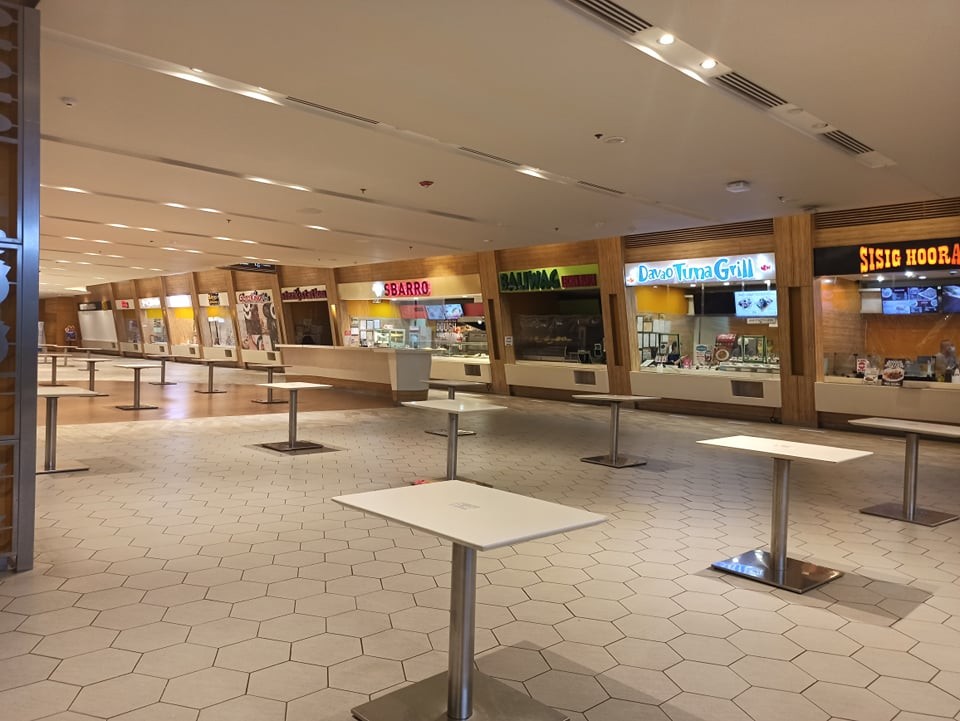For us in the business of selling fish, Lent is always our time to shine. It’s the peak season for our seafood store, Davao Tuna Grill, with branches in mall food courts around Metro Manila.

This year, we expected the same yearly spike in our sales that usually began on Ash Wednesday and peaked every Friday thereafter until Holy Week. Our freezers were full. We were ready for the onslaught of crowds lining up at our counters, observing the Lenten tradition of abstinence. Yes, when people go on a fast, that’s when we sell more food.
“ When you see Jollibee and Mang Inasal shaking and unloading their inventory via online sellers, you, too, would be quaking in your boots. ”
Of course, that didn’t happen this year. After Ash Wednesday, Metro Manila was locked down due to COVID-19. Malls were shuttered. We had to close 17 stores, leaving us stuck with tons of fish that we stored in our freezers.
At the start of the pandemic, mall owners promptly waived rental payments so our main concerns were how to keep our stocks frozen till we reopen, and how to make sure that our employees could feed themselves during the lockdown. We readily advanced their 13th month pay and when that ran out, we gave personal financial assistance to each of them. And then luckily, our company got approved for the SSS “ayuda” for small businesses (two tranches of P8,000 per employee). God was on our side.
“ For the first time since we got into the food business 20 years ago, we were scared. But we had faith. ”
However, the quarantine dragged on and then reality struck. Restaurants around the world were closing. On webinars, experts harped about a new normal in food service to protect diners from the virus. Chefs took to Instagram to teach us how to cook while hawking DIY meal kits. Suddenly, we all came knocking on the doors of FoodPanda, GrabFood and LalaFood, begging to be on their delivery apps. And when you see Jollibee and Mang Inasal shaking and unloading their inventory via online sellers, you, too, would be quaking in your boots.
So for the first time since we got into the food business 20 years ago, we were scared. But we had faith. As early as May, we brazenly reopened at the SM Megamall food court. It was one of our top branches before the world stopped. So confident we were that Davao Tuna Grill was the ONLY store that opened aside from a couple of kiosks that shared our belief in the impossible. There was no competition to speak of so we should do well, right? We had a lot of heart but not a lot of smarts. On that week, we made P900 from two people who ordered on two separate days. Of course, we closed again.

That experience didn’t put us down, though. It made us wiser. We learned that:
- To survive, we really had to go full blast on food delivery platforms;
- We just needed two people (a cashier/supervisor and a cook) to operate a store;
- We should simplify our menu to bestsellers only and those that were “delivery-friendly,” as well as ready-to-eat/ready-to-heat items; and
- We had to bargain (plead) with the malls to extend rental concessions until people became confident enough to go out again.
We knew that the odds were against us but when so many lives depend on you, you have to pull through. When the quarantine was relaxed on June 15, we tried our luck again and cautiously reopened one store after another. We set up our own delivery website on Facebook and finally got listed on food delivery apps. As more businesses reopened, customers slowly found their way back to the malls. Things began looking up. But who we sorely missed were the senior citizens who made a good chunk of our customer base. While other restaurants clamored for a reprieve from giving out 20-percent discounts to senior citizens and PWDs, we were hoping the seniors could break free from their quarantine and come to us.

Right now, most of our branches have reopened but with sales of less than 20 percent of B.C. (before COVID) levels. It can hardly cover salaries, food costs, rent, utilities, taxes. Then pile on top of that: the 25 percent cut of delivery platforms and new business costs for rapid tests, PPEs, disinfection, shuttle transport, etc.
“ The era of fast food as we knew it may be gone so a change in strategy and business model is at hand. The idea of operating outside the malls is there. But for now, it is really just the kindness of mall owners that will tide us over. ”
We’ve been tightening our belts to barely breathing levels. We constantly monitor our sales versus expenses and keep a close watch on our inventory so we don’t overstock and spend unnecessarily.
Our employees work on alternate shifts so they can still draw a salary. Those who can’t walk to work or have no means of transport are shuttled to and from the stores for safety. Yet every now and then when one reports having a fever, cough, sore throat, we freeze in our tracks and think. Do we continue giving employment so they’ll have food on their tables? Or do we close shop to cut the risk to their health and their families’? Every day we pray for good judgment to tread that delicate balance for them.
From the start, my family and I have decided to barrel through this crisis for the sake of our employees, some of whom have been with us for over a decade. We have to keep forging ahead. We must survive, even on a smaller scale. The era of fast food as we knew it may be gone so a change in strategy and business model is at hand. The idea of operating outside the malls is there. But for now, it is really just the kindness of mall owners that will tide us over.
We know this crisis won’t end even after a vaccine is found. With so many fallen comrades in the food industry, the huge task of rebuilding our economy shall fall on the shoulders of those who will remain standing. We hope to be one of them. We may be flailing now but we’ll take our cue from that which has kept our family alive these last 20 years. Like the fish, we will go with the flow. We shall ride the rocky waves till we reach calm waters.
Edited by Büm Tenorio Jr.
